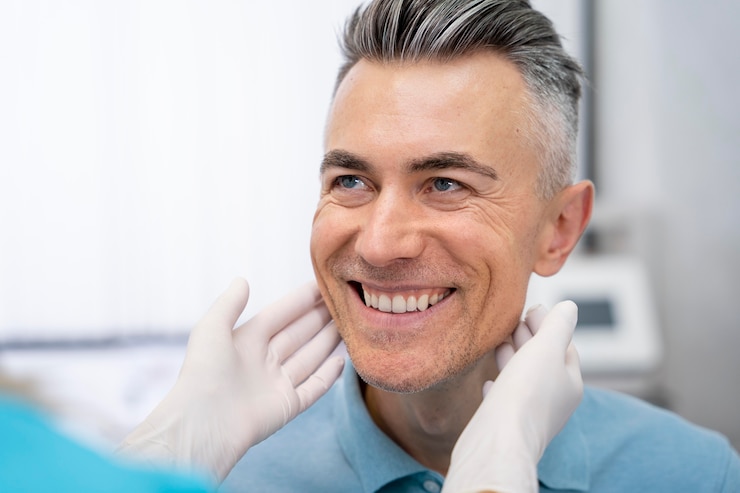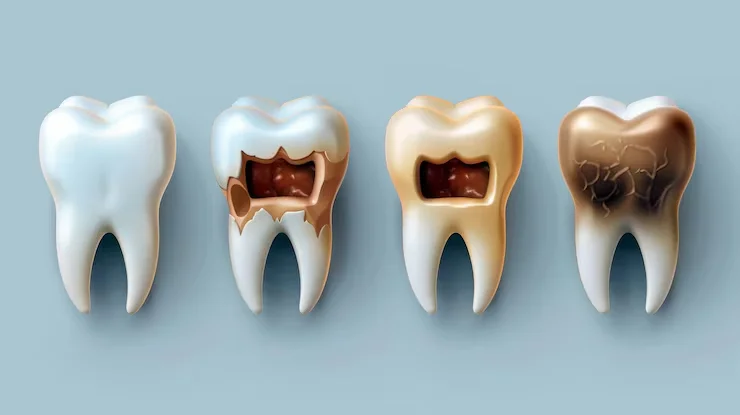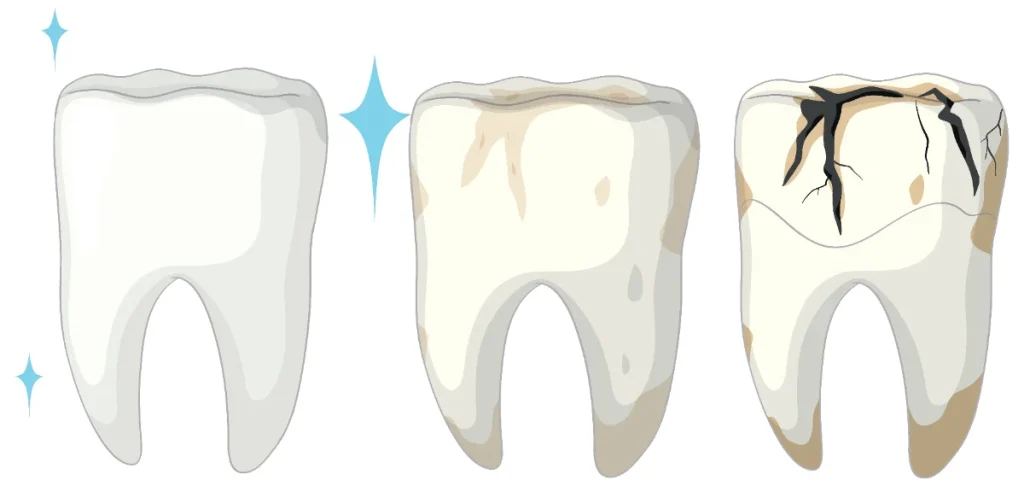Losing teeth significantly impacts the quality of life, making basic activities like chewing, speaking, and smiling confidently more challenging. While traditional removable dentures have been the go-to solution, they often fall short of providing the required comfort and durability.
Full-mouth teeth implants provide a revolutionary alternative, offering exceptional stability, aesthetics, and functionality. They act as natural teeth, which makes them the preferred choice for replacing lost teeth. However, to maximize their lifespan, it is vital to maintain good oral hygiene and adopt specific lifestyle changes. This article provides useful tips for increasing the longevity of your full-mouth teeth implants.
Essential Tips for the Long-Term Success of Full-Mouth Dental Implants
Caring for full implants isn’t complicated. You can enjoy a lasting confident smile with proper guidance from your dentist and consistent oral hygiene practices. Here are some effective steps to enhance the durability of full mouth teeth implants:
1. Practice Good Oral Hygiene.
Healthy gum tissue is vital for integrating implants with the jawbone. Poor oral hygiene can cause many bacterial infections and negatively impact the treatment’s success.
Follow these oral hygiene practices:
- Brush Twice Daily: Brushing twice daily is essential for maintaining good oral health. Use a soft-bristled toothbrush and delicate brushing techniques to avoid plaque and tartar accumulation around the prosthesis.
- Flossing: Flossing removes the lingering bacteria or debris not removed by the brush. It is essential to focus on flossing daily to ensure no debris is left behind. You can use floss threads or water flossers to exclude the food stuck in the interdental areas. For full-mouth teeth implants, a water flosser works better.
- Use an Antibacterial Mouthwash: Choose a non-alcoholic, antibacterial rinse to keep your mouth clean and reduce the risk of infections.
2. Schedule Regular Dental Checkups
Regular dental visits are critical for monitoring the recovery and healing after treatment. These routine checkups help dentists assess the condition of the full-mouth implants and the surrounding tissue.
Regular checkups are beneficial in preventing complications and treating any abnormality right away by following these steps:
- Professional Cleaning: Professional cleanings are recommended after 6 months to remove any plaque or tartar building around the dental implant.
- Treatment Follow-up: Full implant surgeries require time to heal and recover. Monitoring the healing process and promptly addressing any concerns or issues is vital. This helps avoid any major complications that may result from ignorance.
3. Take a Balanced Diet
Proper recovery after full-mouth teeth implants requires a healthy, balanced diet to boost immunity and speed recovery. While dental implants are made of very sturdy biocompatible material, certain foods must be avoided to prevent damage to the prosthesis or the implant. Hence, it is essential to be very mindful of the diet to ensure swift recovery and durability of the implants.
Here are a few tips for a balanced diet to improve the lifespan of your teeth implants:
- Avoid Hard or Sticky Foods: To prevent damage, avoid biting on nuts, chocolate, and ice. These hard foods impart abnormal biting forces that can lead to breakage or fracture of the prosthesis over the implant.
- Limit Sugary or Acidic Foods: Acidic or sugary products alter the mouth’s pH, making it more vulnerable to disease. This facilitates plaque and tartar buildup around the implant and affects oral health.
4. Address Pre-existing Health Issues:
Addressing any pre-existing health issues, which can be related to general health or exclusively limited to the oral cavity, is essential to ensure that the implant treatment lasts for a lifetime.
Here are the most common health issues to consider before treatment:
- Manage Parafunctional Oral Habits: Parafunctional oral habits negatively impact oral health. One of the most common habits is teeth grinding (bruxism), which strains muscles and the jaw bone. If you have this habit, you must inform your dentist before treatment to prevent potential damage to your implants and increase the lifespan of the treatment.
- Monitor Systemic Health: Chronic underlying health conditions such as diabetes, high blood pressure, bone, and autoimmune disorders affect general health as well as oral health and the treatment procedure. Addressing these conditions beforehand is important to prevent complications after surgery. Follow instructions given by your doctor and take prescribed medicines on time to control the effects of these underlying health issues.
5. Avoid Smoking and Limit Alcohol
Both smoking and alcohol can negatively affect the healing process of full mouth implants.
- Smoking: Reduces blood flow, slows healing, and increases the risk of peri-implantitis. Quitting smoking is essential for implant longevity.
- Alcohol: Delays recovery and, when combined with smoking, exacerbates oral health risks.
6. Focus on Warning Signs
If you observe any abnormal change during the healing process, it is better to inform your dentist immediately. Be vigilant and careful to avoid potential risks and complications. If you notice any swelling, pus oozing out, or extreme redness, visit your dentist for an immediate checkup.
Conclusion
Caring for your full mouth implants does not require special efforts, but minor changes in habits and lifestyle can ensure the long-term success and benefits of the treatment. For optimal oral health and implant success, maintain a healthy diet and abstain from tobacco.
These simple steps ensure a fast, easy recovery and a lifetime of confident smiles.
For personalized care and expert guidance on maintaining your dental implants, trust the professionals at Osseo Family Dental. Our skilled team specializes in providing exceptional care for full mouth implants. Whether you’re exploring treatment options or need follow-up care, our Osseo Dentist is here to help every step of the way.Call us today at (763) 425-2626 to schedule your appointment and take the first step toward a healthier smile.





